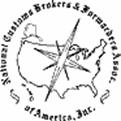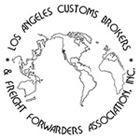Foreign Trade Zones
There are many benefits to using a Foreign trade Zone and every day we are working with them, and have for years. Please contact one of our licensed Customs Brokers to arrange a meeting to discuss the potential benefits to you and your company.
What is a Foreign Trade Zone?
Foreign Trade Zones (FTZs) were created in the United States to provide special customs procedures to U.S. plants engaged in international trade-related activities. Duty-free treatment is accorded items that are processed in FTZs and then reexported, and duty payment is deferred on items until they are brought out of the FTZ for sale in the U.S. market. This helps to offset customs advantages available to overseas producers who compete with domestic industry. The Foreign-Trade Zones (FTZ) Board (composed of representatives from the U.S. Departments of Commerce and Treasury) has its operational staff in the International Trade Administration's Import Administration.
How can companies benefit from using FTZs?
FTZs are considered to be outside of U.S. Customs Territory for the purpose of customs duty payment. Therefore, goods entering FTZs are not subject to customs tariffs until the goods leave the zone and are formally entered into U.S. Customs Territory. Merchandise that is shipped to foreign countries from FTZs is exempt from duty payments. This provision is especially useful to firms that import components in order to manufacture finished products for export.
There is no time limit on goods stored inside a FTZ and certain foreign and domestic merchandise held in FTZs may be exempted from state and local inventory taxes. This allows firms to minimize their costs while their products are waiting to be shipped. In addition, quota restrictions are in some cases waived for items entering an FTZ; however, the restrictions would apply if the items were to enter the U.S. market.
A variety of activities can be conducted in a zone, including assembling, packaging, destroying, storing, cleaning, exhibiting, re-packing, distributing, sorting, grading, testing, labeling, repairing, combining with foreign or domestic content, or processing. Manufacturing and processing require specific FTZ Board approval, however.
Can Foreign Trade Zones hurt domestic producers?
FTZ activity must not conflict with U.S. trade policy or harm domestic industry or other domestic plants outside of zones. The FTZ Board requires that zone manufacturing activity result in a significant public benefit and a net positive economic effect. In addition, the U.S. Customs Service supervises all zone activity and ensures that all customs and FTZ Board requirements are observed.
What are the different types of FTZs?
FTZs are divided into general-purpose zones and subzones. The Foreign-Trade Zones Board accepts and reviews applications for both. State or local governments, port authorities, nonprofit organizations, or economic development agencies typically sponsor general-purpose zones. General-purpose zones involve public facilities that can be used by more than one firm, and are most commonly ports or industrial parks used by small to medium sized businesses for warehousing/distribution and some processing/assembly. Subzones, on the other hand, are sponsored by general-purpose zones, but typically involve a single firm's site which is used for more extensive manufacturing/processing or warehousing/distribution that cannot easily be accomplished in a general-purpose zone.
How can I locate a FTZ near me and who do I contact to begin doing business with it?
In order to take advantage of FTZ procedures, you should contact a local FTZ. A geographic list of all FTZs and their telephone numbers is available on the FTZ Board website, http://ia.ita.doc.gov/ftzpage/. Each FTZ has its own requirements for firms that wish to do business with them, but there is a general process that is followed by all. Many FTZs will counsel prospective clients to determine how they can best use the FTZ. Additionally, many FTZs will discuss with their local U.S. Customs Service offices the qualifications of the prospective clients for the zone. If you are interested in finding out more information on zones, you may contact the nearest zone in your state, visit the FTZ website, or call the FTZ staff at 202-482-2862.



Important Links